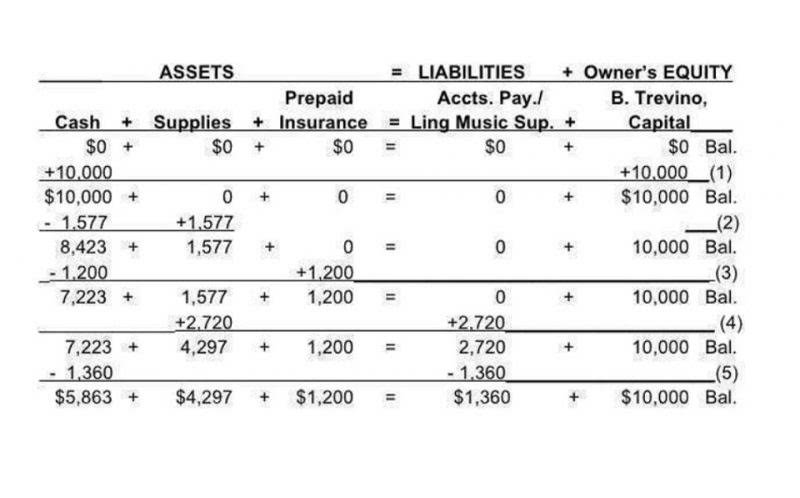
Through this focus, managerial accountants provide information that aims to help companies and departments in these key areas. Cost accounting is a type of management accounting, where the accountant specializes in tracking, reporting, and optimizing a company’s spending—ultimately to increase cost efficiency and profit margins. Management accounting refers to the overall administration of an organization’s finances. Managerial accountants must gather and analyze data and create reports for decision-makers that help them make financially-sound choices for the company’s growth. While both have similarities and live within internal accounting, there are distinct differences that you should understand if considering Car Dealership Accounting a career in these areas. Learn the details between cost vs management accounting to steer your career in the direction that most suits your interests and long-term goals.
Inventory Management

If you want to pursue certification to become a certified management accountant, you have to be a member of the IMA. The IMA membership allows you to access its resources and apply for CMA certification. To stay certified, you’ll have to pay an annual membership fee and complete ongoing continuing education requirements. Management accounting insights on cost and production availability are deciding factors in purchasing choices. Data from managerial accounting empower decision-making at both an operational and strategic level. Financial management includes assessing the risk of investments, the strength of new products, and the compliance of business operations.
- Information relating to the cost and sales revenue of goods and services of the company is useful to the managerial accountants.
- Coursera’s editorial team is comprised of highly experienced professional editors, writers, and fact…
- The specific functions and principles followed can vary based on the industry.
- Financial management covers all the processes necessary for secure control of a business’s monetary resources.
- Additionally, trend analysis and forecasting help in predicting future expenses and revenue, enabling better long-term planning.
What Is Corporate Accounting? Definition, Types and Functions

One of the Major objectives of Management accounting is to keep the Management informed about the performance, adherence to plans and progress of various sections of the organisation. Traditional Profit and Loss Account and the Balance Sheet are not analytical for decision making. Management accounting modifies and rearranges data as per the requirements for decision making through various techniques.
By business type

Management Accounting rarely maintains basic and primary records of operations, expenses and revenues. It derives all of its Primary data from Financial Accounting, cost Accounting and other relevant records. So, the accuracy .and reliability of the conclusions derived by Management Accounting is limited to the reliability of its sources of data, so, it suffers from several of the limitations of Finance Accounts and cost management accounting definition Accounts.
Is CMA Certification Worth It?

It involves creating a financial plan for the company and using performance reports to compare actual results with budgeted figures. Variances, whether positive or negative, are analyzed to adjust plans and ensure the business stays on track. Additionally, trend analysis and forecasting help in predicting future expenses and revenue, enabling better long-term planning. Management accounting also involves identifying constraints or bottlenecks in the production or sales process. By analyzing these constraints, businesses can determine how they affect revenue, profit, and cash flow. Understanding these limitations allows managers to implement changes that improve efficiency and enhance overall productivity.

Career Tools
- Management accounting includes analyzing leverage through performance measures like return on equity, debt-to-equity ratio, and return on invested capital.
- RCA emerged as a management accounting approach around 2000 and was subsequently developed at CAM-I,20 the Consortium for Advanced Manufacturing–International, in a Cost Management Section RCA interest group21 in December 2001.
- Suppose Jacob, the purchase manager at a footwear manufacturing company named Amacon, is looking to purchase equipment for the business that can increase production.
- While it differs from financial accounting in its focus and audience, it is equally important for a business’s overall success.
- The terminology of cost accounting had no reference to the word ‘management accountancy’ before the visit by this study group.
The main difference between financial and managerial accounting is whether there is an assets = liabilities + equity internal or external focus. Financial accounting focuses on creating and evaluating financial statements that will be reported externally, like creditors and investors. In contrast, managerial accounting analyses and results are kept in-house for business leaders to use to drive decision-making and run the company more effectively.